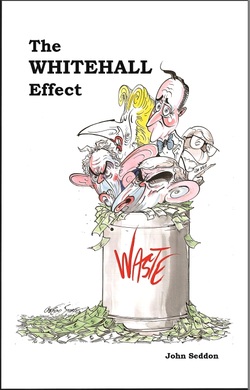 I wrote a book some years ago about
the friendship and rivalry between Columbus, Cabot and Vespucci (Toward the Setting Sun). One of the things that
became clear to me as I researched it is just how much the excitement of
discovery – then and later – was bound up with the prospect of sex with
powerless people.
I wrote a book some years ago about
the friendship and rivalry between Columbus, Cabot and Vespucci (Toward the Setting Sun). One of the things that
became clear to me as I researched it is just how much the excitement of
discovery – then and later – was bound up with the prospect of sex with
powerless people.
Later, when I wrote Voyages of Discovery,
it came home to me even stronger. But
for some reason, the scholars have tended to ignore this. It is as if it wasn’t an important part of
the experience of imperialism, yet it was.
That was how Columbus’ first
expedition could bring virulent syphilis back to Europe. It was why a later charter for Cabot’s
successors by Henry VII of England carried a warning against forced sex.
It was also the nakedness of the
natives that first excited major European audiences to Vespucci’s writings, real
or fake. Sex and discovery was bound up in everyone’s mind then. See Donne’s
poem about going to bed with his mistress if you’re not sure ("O my America, my new found land...").
Finally, it was the real meaning of
the description by Columbus’ friend Michele de Cuneo of his encounter with a
native woman in his cabin:
“Having taken her into my cabin, she
being naked according to their custom, I conceived a desire to take pleasure. I wanted to put my desire into execution but
she did not want it and treated me with her finger nails in such a manner that
I wished I had never begun.”
The Algonquin people who met
Verrazano’s expedition in 1524 made sure than no women went on board his ships. They knew the score by then.
I have been sceptical about the
furore over historical child abuse until recently. But the stories about Westminster in the
1980s (still just stories) keep reminding me of Columbus and Michele de Cuneo,
and all the others.
Nobody who reads about the period
can be in any doubt that sex with powerless people tended towards violence and
lazy murder. Anyone who doubts that
needs to read the reportage of Bartolomé de las Casas at the time.
There was something of the imperialist
frame of mind, the complete impunity of the conqueror, about Westminster in the
1980s. Was there enough of a whiff of
imperialism to suspect the worst?
And there is peculiar element to the
story: even now, five centuries after the discovery of the New World, few
people seem to write about the phenomenon of sex with powerless people in the
history of discovery. Violence, yes –
sex, no. Nor, it seems, have they known how to categorise it or talk about it in our own time.
I am suspicious of witch-hunts, of
the pursuit of abusers into their powerless dotage. I am nervous of the political consequences of
discovering that our politicians were harbouring child murderers only a few
decades ago. But there was a sickness abroad in
the 1980s, which has in turn led to an economic weakness which I’ve written
about in my book Broke. If that imperial
mindset led to child murder, it would be the scandal of the age.
It would change everything, and
should do – and we simply have to know.



.jpg)










